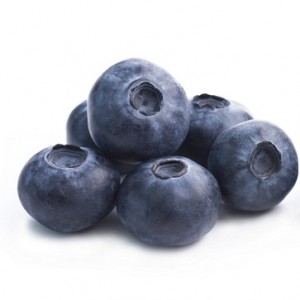New techniques at play to make blueberry quality more science, less ‘art’
Patrick Ulloa of Australia’s leading produce company Costa Group will discuss the next frontier of quality management during the International Blueberry Organization (IBO) Summit in Coffs Harbour, Australia on Sept. 7-9.
As blueberry volumes are set to at least triple in the next decade, growers and traders will need to entice more palates to keep profits afloat.
The crop has surfed on a wave of popularity in recent years but higher tonnage will put prices under pressure. Demand-focused efforts will therefore be critical for maintaining the dynamism of these little blue dynamos.
Australia’s leading produce company Costa Group is approaching the challenge head on, testing new berry quality measurements from a lab in development in Corindi, New South Wales.
In nearby Coffs Harbour, Costa’s berry quality manager Patrick Ulloa will be explaining the initiative to a diverse international delegation during the International Blueberry Organization (IBO) Summit on Sept. 7-9.
“In the past we used to just assess quality with a visual assessment and it was based from experience,” says Ulloa.
“Now we are learning how to measure not only the sugar, brix levels or soluble solids, but the acidity of berries so we can calculate the ratio between the acidity and the sugar content – by doing that we can better estimate the potential storage life of the different varieties we have.
“If we’re going to leave them for long-term storage in modified atmosphere for example, we want to make sure that fruit really has potential. And if it doesn’t, it’s better not to do it at all.”
He says the company has also brought in the FirmTech 2 Fruit Firmness Tester from the USA, which will be able to show exact firmness levels and fruit diameter for 25 berries at a time.
“Until now we have only been measuring the firmness using only our fingers.”
He says the project has been in the works for the last couple of seasons, with the aim of making quality management more of a science than an art.
“If we cannot measure it we cannot manage it,” says Ulloa.
“Now I think we are moving ahead and really learning what is the potential and capacity of that particular variety or batch. Maybe that same variety is going to perform differently under different conditions as well.
“This is the new frontier, to learn about the internal quality of the product, to be able to identify, and to be able to manage it.”
A compelling case for blueberries
Testament to the rapid transformation the industry has experienced, Ulloa comes from Chile which is now the world’s leading blueberry-exporting nation, but he didn’t see the fruit at all growing up or during his university studies in agronomy.
“To be honest when I came to Australia we didn’t have any blueberries in Chile. I arrived in 1987 and I didn’t know them,” says Ulloa, who back in Chile went by the name ‘Patricio’.
“It took me a few years before I saw them here in Australia. I have spent a lot of time in other horticultural products but for the last four years I’ve been working with blueberries and it’s very exciting.
“Compared to many other horticultural products, I think blueberries are one of the greatest.”
He says blueberries have so much potential because not only are they healthy and full of antioxidants, but they are also very tasty. Additionally, they are hardier than other berries in the supply chain.
“Compared to all the other berries blueberries are one of the toughest; you can keep them for weeks, you can do modified atmosphere and travel long distances.
“If you try to do the same thing with raspberries and strawberries, which we also have, it is really hard.
“Also from a picking point of view, this is not like lettuce or other crops where you have to bend down or get on a ladder with a heavy bag like in apples, but you have a little packet, you go about picking and it’s much easier.”
According to Fall Creek Farm & Nursery business development director Cort Brazelton, who prepares market reports for the U.S. Highbush Blueberry Council, global blueberry production surpassed 560,000 metric tons (MT) in 2014 and is expected to reach 770,000MT by 2019.
The IBO event will take place at the Novotel Pacific Bay Resort in Coffs Harbour, New South Wales, Australia on Sept. 7-9.
For more information about the event, please contact Jayne Hindle, Amy McIntosh, or Jasmine Durbidge. Phone: +61 2 6650 9800 Email: jayne@eastcoastconferences.com.au
05/04/2015
Fresh Fruit Portal






